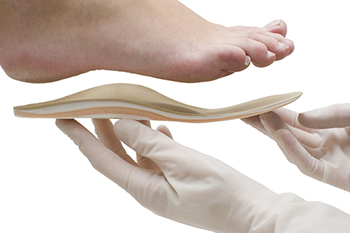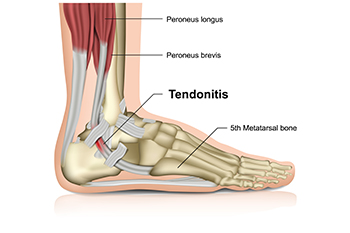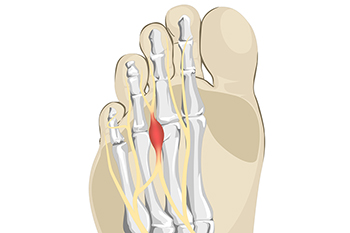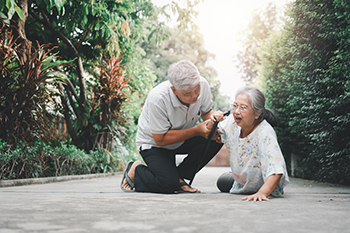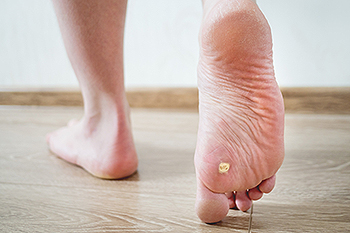
People who are afflicted with plantar warts may have difficulty walking. These growths are found on the soles of the feet and can cause severe pain and discomfort. This is a result of the consistent weight the feet endure while walking and standing during the day. Plantar warts are caused by a virus that is known as the human papillomavirus, or HPV. This virus is contagious, and lives in warm and moist environments. These can consist of public swimming pools, locker rooms, and shower room floors. It is beneficial to wear appropriate shoes while in these areas, such as flip flops or water shoes. This type of wart will generally take several weeks or months to completely disappear. Many patients seek treatment to relieve the pain, which may include removal for faster relief. If you have a plantar wart, it is suggested that you speak to a podiatrist who can guide you toward the treatment that is correct for you.
Plantar warts can be very uncomfortable. If you need your feet checked, contact one of our podiatrists from Foot and Ankle Clinics, PA. Our doctors will assist you with all of your foot and ankle needs.
About Plantar Warts
Plantar warts are the result of HPV, or human papillomavirus, getting into open wounds on the feet. They are mostly found on the heels or balls of the feet.
While plantar warts are generally harmless, those experiencing excessive pain or those suffering from diabetes or a compromised immune system require immediate medical care. Plantar warts are easily diagnosed, usually through scraping off a bit of rough skin or by getting a biopsy.
Symptoms
- Lesions on the bottom of your feet, usually rough and grainy
- Hard or thick callused spots
- Wart seeds, which are small clotted blood vessels that look like little black spots
- Pain, discomfort, or tenderness of your feet when walking or standing
Treatment
- Freezing
- Electric tool removal
- Laser Treatment
- Topical Creams (prescription only)
- Over-the-counter medications
To help prevent developing plantar warts, avoid walking barefoot over abrasive surfaces that can cause cuts or wounds for HPV to get into. Avoiding direct contact with other warts, as well as not picking or rubbing existing warts, can help prevent the further spread of plantar warts. However, if you think you have developed plantar warts, speak to your podiatrist. He or she can diagnose the warts on your feet and recommend the appropriate treatment options.
If you have any questions please feel free to contact our offices located in Woodbury, West St. Paul, and Edina, MN . We offer the newest diagnostic and treatment technologies for all your foot and ankle needs.
